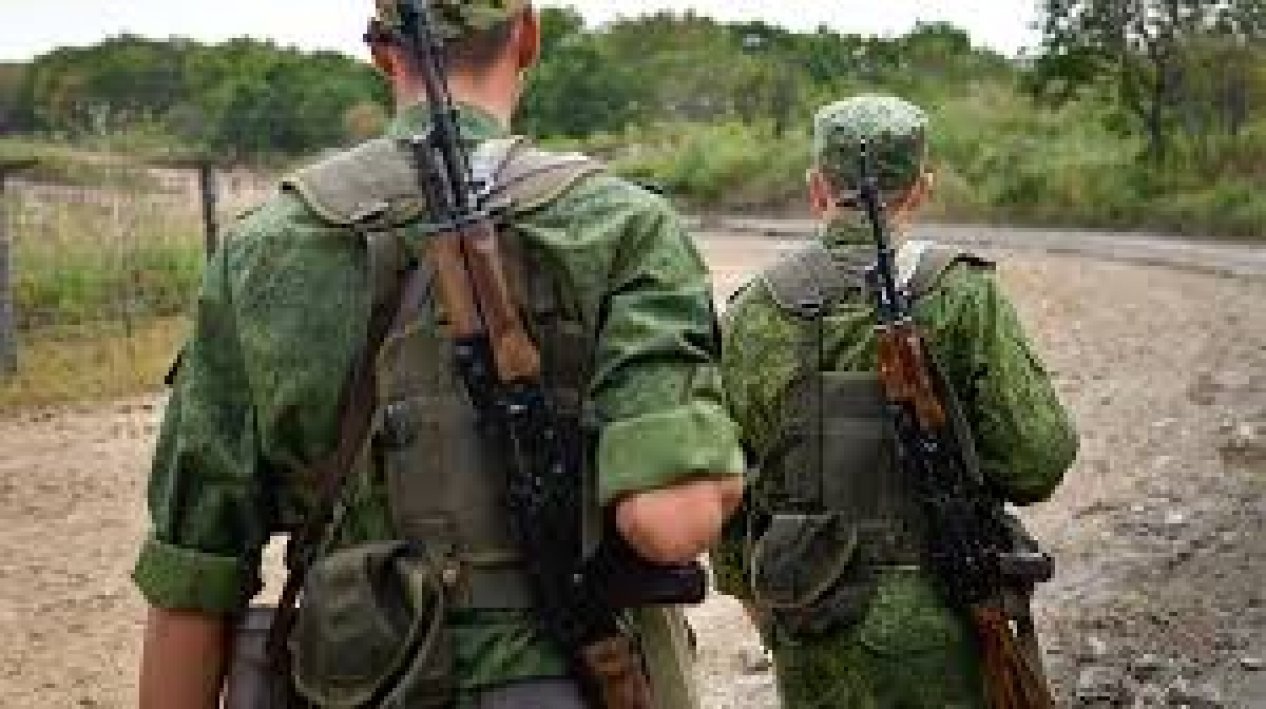
It makes sense to consider the issue of placing Russian border guards along the entire Armenia-Azerbaijan border for demarcation work without the risk of clashes, Armenian Prime Minister Nikol Pashinyan said at a government meeting.
He also proposed the deployment of the CSTO monitoring mission along the entire Armenia-Azerbaijan border, which is provided for by the legal norms of the CSTO activities.

According to clause 5.3. of the CSTO Collective Security Strategy for the period up to 2025 (approved on October 14, 2016), in the field of countering transnational challenges and threats, it is envisaged to promote the collective interests of the CSTO member states, among other measures, through interaction in the field of protecting state borders.

The case is transnational challenges and threats to the collective security of the CSTO space. It is no coincidence that CSTO Secretary General Stanislav Zas previously told reporters that the aggravation of the situation in the south of Armenia is a border incident and it doesn’t fall under the provisions of the CSTO charter on collective defense.
“You have to understand that the potential of the CSTO is used only in the event of an aggression, an attack (on one of the member countries). Here we are dealing, in fact, with a border incident.”
Russian political scientist, expert on the post-Soviet space Arkady Dubnov also believes that the initiatives of Nikol Pashinyan aren’t very promising.
Dubnov is convinced that the idea of deploying observers on the Armenia-Azerbaijan border won’t find consensus in the CSTO, and Baku won’t like the deployment of Russian border guards along the entire border. According to Dubnov, touching on the CSTO topic, Nikol Pashinyan is making the same mistake as at the very beginning of his rule in 2018. “That situation didn’t bring any benefit to Yerevan,” the expert stated. “The problems were solved, but with obvious damage to the image of both the CSTO and Armenia. I don’t know if Nikol Pashinyan realizes that he is repeating his mistake, but his current rhetoric can lead to similar consequences.”

It is worth paying attention to the fact that the CSTO issue is also absent in the discourse between Armenia and Russia. The conversation is only about Russian border guards. This can be judged by the statements made by the Russian ambassador in Yerevan.
Practical work is underway on the proposal of Armenian Prime Minister Nikol Pashinyan to deploy Russian or international observers along the Armenia-Azerbaijan border, Russian Ambassador to Armenia Sergei Kopyrkin said in an interview with the Public Television of Armenia.
According to military expert Azad Isazade, the Armenian side believes that the Azerbaijani military invaded its territory and advanced several kilometers, and regard this as aggression and occupation. But the point is that the state border between Azerbaijan and Armenia has not been agreed upon. There is no documentary evidence that Azerbaijan violated the Armenian border and invaded its territory, he added.
“In this situation, we are dealing with border disputes, not aggression, and therefore the CSTO refrains from interfering,” Azad Isazade said. He drew attention to the non-interference of the CSTO to the border conflict between two members of the organization - Tajikistan and Kyrgyzstan. “The border dispute has escalated between the parties. However, the CSTO refrained from military intervention, didn’t act as an arbiter, and preference was given to diplomatic ways to eliminate tension,” Isazade said.
Yerevan also recognizes the absence of a border between Armenia and Azerbaijan. “The process of determining the state border between Armenia and Azerbaijan is currently unclear from a legal point of view, because there was no official demarcation and delimitation of borders between the two countries,” Armenian President Armen Sarkissian said during a meeting with Ombudsman Arman Tatoyan, the press service of the presidential office reported on August 3.

During the clashes on the Tovuz direction of the state border in July 2020, Armenia already turned to the CSTO and expected the organization to intervene. Armenian Foreign Minister Zohrab Mnatsakanyan then had a telephone conversation with CSTO Secretary General Stanislav Zas.
Mnatsakanyan presented to Zas “detailed information on violations of the ceasefire by the Azerbaijani armed forces on July 12 of this year with the use of artillery fire in the direction of the Tavush region of the Republic of Armenia, on the resumption of these actions in the morning of July 13, as well as on the consequences of further aggravation of the situation. The foreign minister stressed the unacceptability of such actions in relation to a CSTO member state.”
In this regard, an emergency meeting of the CSTO Permanent Council was scheduled for July 13. However, it never took place.
An emergency meeting of the Permanent Council of the Collective Security Treaty Organization in connection with the aggravation of the situation on the Armenia-Azerbaijan border has been postponed for consultations on the format in which the situation will be discussed, CSTO spokesman Vladimir Zainetdinov told RIA Novosti.

Commenting on the fact that the meeting wasn’t held, Russian military political expert Pavel Felgenhauer said that no country in the CSTO would interfere in this conflict. “Will Kazakhstan, Kyrgyzstan, Belarus send an army against Azerbaijan? Never! As for Russia, the country is present in the region. There are Russian troops in Armenia. However, it is not in Russia’s interests to intervene in the Armenia-Azerbaijan conflict on the part of Armenia... This is evidenced by the fact that an emergency meeting of the CSTO was first convened, and then postponed indefinitely. Nobody can force either Russia or other CSTO members to fight against Azerbaijan. In my opinion, the decision to postpone the emergency meeting of the CSTO was also made in Moscow. This shows that Armenia is currently in isolation. The entry of the CSTO into this conflict isn’t in the interests of the member states of the organization.”




















